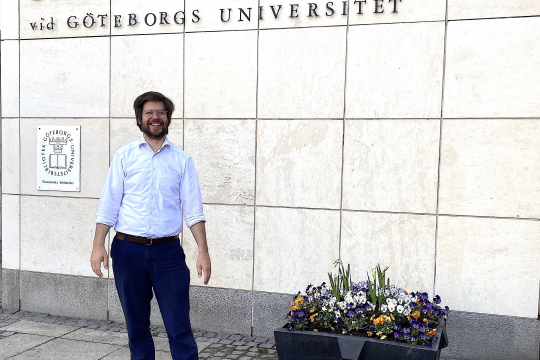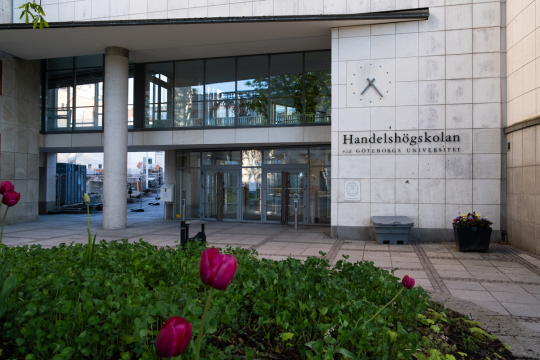Jan Steckel, a well-known researcher within the EfD network, will spend four months at EfD’s Global Hub in Gothenburg, Sweden. During his stay in Gothenburg, he will kickstart Emission Pricing for Development, a collaborative research program.
Jan Steckel is usually leading the Climate and Development group at the Mercator Institute (MCC) in Berlin and works as also a Professor for Climate – and Development Economics at the Brandenburg University of Technology. He has been involved in many EfD projects and was, among many other things, a keynote speaker at the EfD Annual Meeting 2020.
The Emission Pricing for Development (EPFD) is not a completely new program. It was initially founded at the EfD Annual Meeting in Bogota in 2019. But the pandemic slowed down progress. Even though there have been some activities in the program, they have been rather modest, and it’s now time to kickstart the continuation of the program.
Will make plans for the program
“I will work on a strategy for the program, establish what we want to achieve, concrete research projects, collaborations, and funding,” explains Jan Steckel.
He will be working closely with among others with Eswaran Somanathan, Center Director at EfD India, Thomas Sterner at the Economics Department of the University of Gothenburg and one of the founders of EfD, Anjali Ramakrishnan at EfD’s Global Hub, and.
There is, according to Jan Steckel, a need to explain why we need to have this program at all. Carbon emissions are comparatively low in the Global South as it is.
Policies must be fair
“Our climate budget is so small that today’s low- and medium-income countries will also need to cut emissions, from arguably low levels. This is often conceived as being unfair, so it’s important to implement policies that are acceptable and fair, both internationally and nationally.”
Some ways of doing this are to provide funding for clean energy, to “de-risk” those investments, and to use the revenues from emissions pricing to overcome poverty.
The war in Ukraine may, at least temporarily, remove the spotlight from the climate crisis and make people reluctant to make fuel even more expensive. But on the other hand, it also shows with dire clarity the dangers of being dependent on fossil fuels.
Important role to play
“We are convinced that emissions pricing has an important role to play, in the Global South as well in the high-income countries. But there is a great need for more research on this topic and how to make it work.”
Jan Steckel and his family – wife and daughter – are now settling into their new environment, where they will stay until the end of July. Gothenburg is a much smaller city than Berlin and different in many ways.
“Here we have pretty much everything within walking distance which is very nice. And I also appreciate the proximity to the sea. I hope it will get a bit warmer soon and I look forward to exploring all the sights with my family!”

